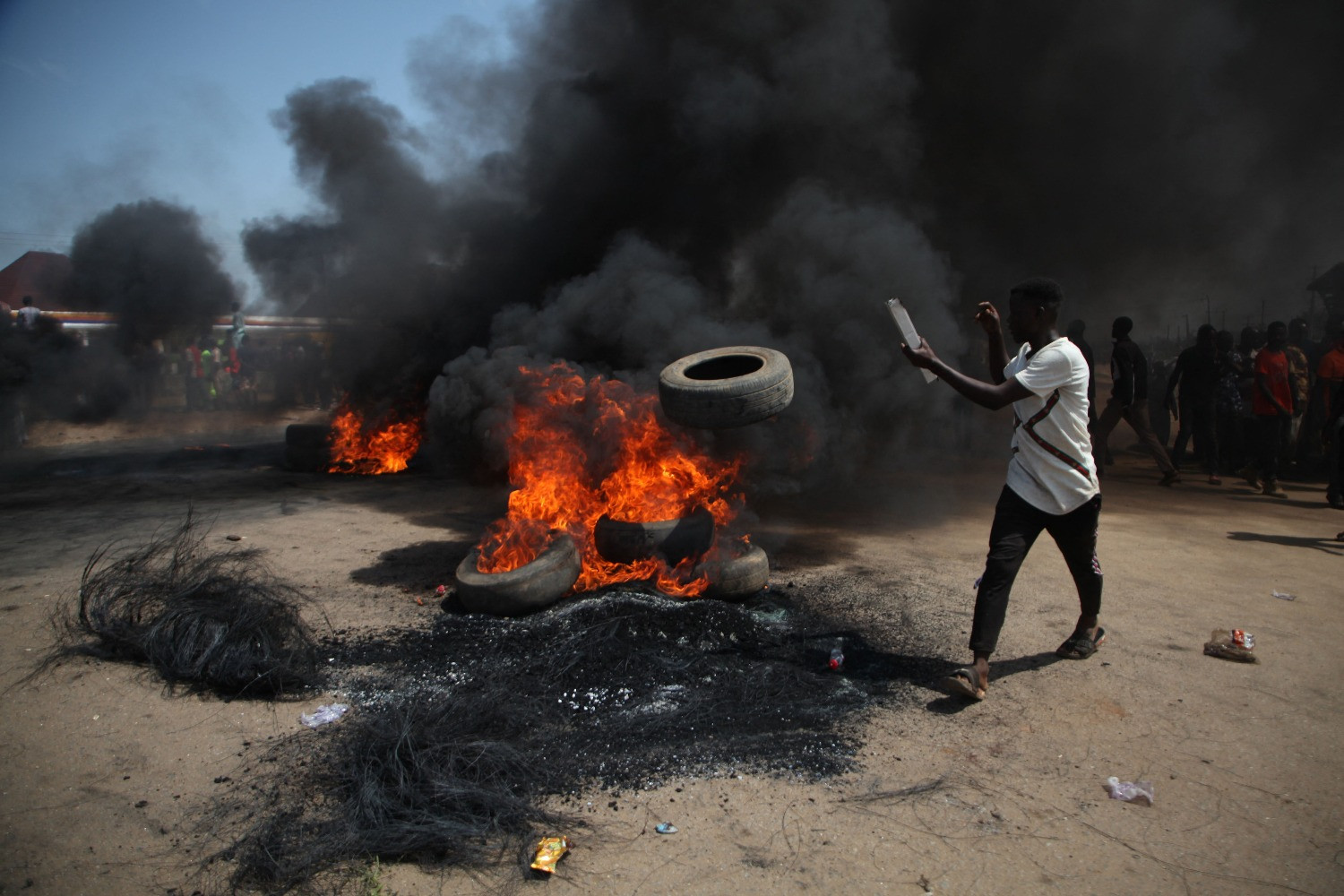Featured
“Nigeria Is a Failed State” – John Campbell says government has lost control and Garba Shehu fires back

John Campell, the former US Ambassador to Nigeria in his Op-ed for Foreign Policy says “Nigeria has long teetered on the precipice of failure. But now, unable to keep its citizens safe and secure, Nigeria has become a fully failed state of critical geopolitical concern. Its failure matters because the peace and prosperity of Africa and preventing the spread of disorder and militancy around the globe depend on a stronger Nigeria.”
The Senior Fellow for Africa @CFR_org, in the 11 paragraph article, narrated how the Nigerian economy is usually estimated to be Africa’s largest or second largest, after South Africa. Long West Africa’s hegemon, Nigeria played a positive role in promoting African peace and security.
He said with state failure, it can no longer sustain that vocation, and no replacement is in sight. “Its security challenges are already destabilizing the West African region in the face of resurgent jihadism, making the battles of the Sahel that much more difficult to contain. And spillover from Nigeria’s failures ultimately affect the security of Europe and the United States”.
According to the former envoy, “This designation of repeated failure is not a knee-jerk, casual labeling using emotive and pejorative words. Instead, it is a designation informed by a body of political theory developed at the turn of this century and elaborated upon, case by case, ever since. Indeed, thoughtful Nigerians over the past decade have debated, often fervently, whether their state has failed. Increasingly, their consensus is that it has”.
He proceeded to say there are four kinds of nations: the strong, the weak, the failed, and the collapsed. According to previously published research estimates, of the 193 members of the United Nations, 60 or 70 are strong—the nations that rank highest in the listings of Freedom House, the human rights reports of the U. S. State Department, the anticorruption perception indices of Transparency International, and so on. There are three places that should be considered collapsed: Somalia, South Sudan, and Yemen.
Eighty or 90 U.N. members are weak. Weakness consists of providing many, but not all, of essential public goods, the most important of which are security and safety. If citizens are not secure from harm within national borders, governments cannot deliver good governance (the essential services that citizens expect) to their constituents, his article read in parts.
In the piece also contributed by Robert I. Rotberg, the founding director of the Harvard Kennedy School’s Program on Intrastate Conflict, “Possibly a dozen or so states are failed, including the Democratic Republic of the Congo, Central African Republic, and Myanmar. Each lacks security, is unsafe, has weak rules of law, is corrupt, limits political participation and voice, discriminates within its borders against various classes and kinds of citizens, and provides educational and medical services sparingly.”
The authors added, “Most of all, failed states are violent. All failed states harbor some form of violent internal strife, such as civil war or insurgency. Nigeria now confronts six or more internal insurrections and the inability of the Nigerian state to provide peace and stability to its people has tipped a hitherto very weak state into failure”.
“At a bare minimum, citizens expect their states to keep them secure from external attack and to keep them safe within their borders. The bargain that subjects long ago made with their sovereigns was being kept from harm in exchange for allegiance and taxation. When that quid pro quo breaks down, a state loses its coherence, its social fabric disintegrates, and warring factions subvert the social contract that should provide the fundamental foundation of the state. Nigeria now appears to have reached the point of no return.”
Boko Haram, a fundamentalist-inspired militia of possibly 5,000 attackers, also raids neighboring Chad and northern Cameroon, and is believed to shelter in the Sambisa forest along Borno’s mountainous border with Cameroon. Exactly why a Nigerian Armed Forces of 300,000 troops and a $2 billion budget has failed to extirpate Boko Haram is not clear; corruption in the military is allegedly a major factor, as well as inconsistent leadership from officers and politicians. (And, like Afghanistan’s Taliban, Boko Haram seems to have some limited local support.)
According to political theory, the government’s inability to thwart the Boko Haram insurgency is enough to diagnose Nigeria as a failed state. But there are many more symptoms.
But the Nigerian presidency on Thursday says John Campbell, a former US ambassador to Nigeria, has been “consistently” proven wrong over his predictions that the country will collapse. The presidency was reacting to a recent article co-authored by Campbell and Robert Rotberg.
Reacting in a statement on Thursday, Garba Shehu, presidential spokesman, said while Campbell is entitled to his opinions, events have proven his predictions wrong.
Shehu further said Campbell distorted facts to suit an argument when he wrote in the article that President Muhammadu Buhari requested that AFRICOM be moved to Nigeria.
“Ambassador Campbell has been predicting the collapse of Nigeria for several years. He is of course entitled to his opinions, even where events consistently prove him wrong. But facts should not be bent to support distorted opinions,” Shehu wrote.
“President Buhari did not request that AFRICOM move to Nigeria. The transcript of the call with Secretary Blinken is available on the State Department’s own website.
“It’s not just a question of the invented addition of ‘to Nigeria’ with regard to AFRICOM. It sums up a piece that attempts – subtly but revealingly – to shift facts to suit an argument. Nigeria faces multiple challenges, not least of which is the dissemination of fake news and prejudiced opinion.
“This is something we have come to expect from partisan blogs and politically motivated lobbies. It is still a surprise, and a disappointment, to see them joined by Foreign Affairs.”




